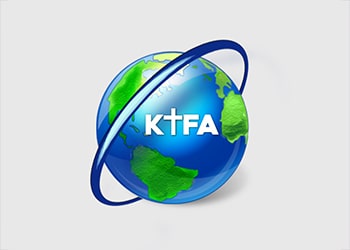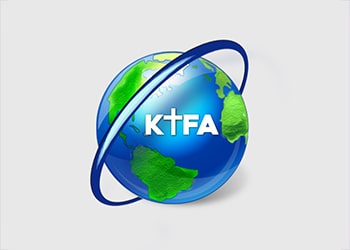KTFA: Vietnam
Henig: Hanoi eyes 950 firms in support industries this year
06:00 | 02/02/2023
Hanoi has set a target to have about 950 enterprises operating in the field of supporting industries this year, an increase of approximately 20 compared to 2022.
Of the total, there will be about 300 – 350 firms with production systems and products with international standards and sufficient supply capacity serving participation in the global production network of multinational conglomerates in Vietnam.
As a result, industrial production value of the industries is expected to account for some 16 – 17% of the capital city processing and manufacturing production value, with the development index of the industries exceeding 11-12%, an annual rise of about 1%.
To this end, the local authorities will hire experts for technical consultation, as well as assist firms in receiving technology transfer, conducting research and development activities, and applying management systems meeting global supply chains’ requirements, among others.
The city also planned a support industry expo this year with a scale of between 200 and 300 stalls, attracting the participation of international companies from Japan, Taiwan (China), Hong Kong (China), and Thailand.
Source: VNA LINK
***************
Henig: Vietnam pursues green foreign trade
06:00 | 02/02/2023
(VEN) – Vietnam reached a record foreign trade value of an estimated US$750 billion in 2022. Vietnam Economic News’ Phuong Lan spoke with Tran Thanh Hai, Deputy Director of the Ministry of Industry and Trade’s Agency of Foreign Trade about export growth and efforts to promote green, sustainable foreign trade.
Could you tell us about Vietnam’s trade achievements in 2022?
In the first 11 months of 2022, despite numerous difficulties in the world market, Vietnam earned export revenue of US$342.2 billion, up 13.4 percent from the same period of 2021. The 2022 figure is expected to increase 11-12 percent over 2021’s, exceeding the target set by the government. Vietnam exported US$10.7 billion and is expected to export US$10-12 billion more than it imported in the first 11 months and the whole year of 2022, respectively.
Processed industrial products yielded export revenue of US$294.6 billion in the first 11 months of 2022, up 13.4 percent from the same period in 2021 and accounting for 86.1 percent of the country’s total.
Meanwhile, farm produce and seafood exports grew 11.6 percent, and fuel and mineral exports soared 34.2 percent.
Exports to all markets recovered compared to 2021. According to the General Department of Vietnam Customs, in the first 11 months of 2022, exports to the US, China, the Republic of Korea (RoK), and countries and territories that are Vietnam’s FTA signatories, including the EU, ASEAN (Association of Southeast Asian Nations), Australia, Canada, and Japan maintained significant growth.
What is your assessment of Prime Ministerial Decision 493/QD-TTg on Vietnam’s goods import and export strategy to 2030?
The government set a 6-7 percent annual goods export growth target for the 2021-2030 period. Under the strategy, Vietnam will seek sustainable export development instead of rapid export growth, which will be promoted with a harmonized export structure, green, fair and balanced trade, short- and long-term development goals, social equality, and environmental protection. The target is lower than the two-digit export growth Vietnam achieved even in difficult periods but it reflects the government’s goal for environmental and natural resource protection, as well as a better future for the nation’s younger generations. Businesses need to pay due attention to this orientation in order to reach sustainable export development.
What is your assessment of 2023 export prospects?
The world economy and global trade are expected to face further difficulties in 2023. Meanwhile, free trade agreements (FTAs) with tariff reduction roadmaps, socioeconomic recovery programs, and efficient domestic and foreign investment attraction will become the driving force of production and export development. Vietnamese businesses are expected to further take the initiative in creative new market approach, and make use of FTA advantages to maintain and develop exports in 2023.
They need to further improve competitiveness and create high-quality, reasonable-price products that meet standards of discerning foreign markets. Business associations and sectors need to continue connecting state management agencies with businesses, and protect the legitimate rights and interests of enterprises in international trade disputes.
Phuong Lan LINK
Henig: Vietnamese university up 97 places in Webometrics ranking
10:00 | 02/02/2023
Vietnam National University (VNU) – Hanoi climbed 97 places to rank 661st in the latest Webometrics Ranking of World Universities in 2023, which was announced on February 1 by the Cybermetrics Lab, a member of the Spanish National Research Lab.
Vietnam National University (VNU) – Hanoi climbed 97 places to rank 661st in the latest Webometrics Ranking of World Universities in 2023, which was announced on February 1 by the Cybermetrics Lab, a member of the Spanish National Research Lab.
The university also remains the No.1 among the top 10 Vietnamese establishments named in the list. Others include Ton Duc Thang University, Duy Tan University, Nguyen Tat Thanh University, Hanoi University of Science and Technology, Ho Chi Minh City University of Technology, University of Economics Ho Chi Minh City, Industrial University of Ho Chi Minh City, Da Nang University and Can Tho University.
Since 2004, the Webometrics Ranking is published twice a year, covering more than 31,000 higher education institutions worldwide.
It is a ranking chart to assess the digitalisation capacity and impact, academic resources of higher education institutions based on indicators of volume of the website content (presence), the extent of website system and online information’s impact (impact/visibility), openness on academic resources on Google Scholar (openness), and scientific citation index on Scopus database system (excellence) of a higher education institution.
Source: VNA LINK
*************
Henig: Garment, footwear exports aim to reach US$80 billion by 2025
07:00 | 02/02/2023
Under the development strategy approved by the Government, for the long term, the garment, textile, leather and footwear sectors are still key export industries of the economy.
Việt Nam’s textile, garment and footwear sectors aim to achieve a total export value of US$77-80 billion in 2025 and $106-108 billion in 2030, according to the strategy for the development of Việt Nam’s textile and footwear industry.
Under the development strategy approved by the Government, for the long term, the garment, textile, leather and footwear sectors are still key export industries of the economy.
Of which, the textile, garment, leather and footwear sectors continue to promote investment in the production of materials and auxiliary materials, as well as supporting industries.
They will encourage the production of fabrics from domestically produced yarn to reduce imports, and form a complete supply and value chain in the region.
For the leather and footwear industry, Nguyễn Đức Thuấn, chairman of Lefaso, said domestic enterprises needed to actively adapt to the requirements of the market and brands on sustainable development standards for products. They must reduce emissions in the production process, and increase the use of solar energy and highly sustainable products.
Also, according to the strategy, Việt Nam’s textile and garment industry expects export turnover to reach $50-52 billion in 2025 and $68-70 billion in 2030.
The strategy also states that developing the fashion industry is considered a new direction. Accordingly, this sector will focus on developing designers, and raw material supply, production and distribution systems to form supply chains and create sustainable foundations for the development of Việt Nam’s fashion industry as well as fashion centres in Hà Nội and HCM City.
The strategy encourages enterprises to gradually switch their production methods to FOB (free on board) and ODM (original design manufacturer) to add value to products, and build a private brand to improve the competitiveness of the businesses and products.
Materials are the most difficult factor in the textile and garment industry. Therefore, to promote the development of the textile and garment supporting industry, the textile and garment industry strives to have a localisation rate at 51-55 per cent in 2021 – 2025 and 56-60 per cent in 2026-2030.
To achieve this goal, it is necessary to attract investment in the development of supporting industries and the production of raw materials and accessories for the textile and garment industry based on advantages in the free trade agreements Việt Nam has joined.
The projects to develop the supporting industry and the production of raw materials and accessories should be built in regions with a number of textile and garment enterprises to reduce transport charges and production cost and improve competitiveness.
The strategy also mentions the role of State management agencies in encouraging enterprises to invest in producing fiber, yarn, textile and dyeing with advanced technology and connections with domestic garment enterprises.
This approved textile and garment development strategy will help form industrial parks with wastewater treatment areas to attract textile and dyeing projects. Now, the infrastructure for textile, dyeing and fabric production is still limited.
Domestic fabric production only reaches 2 billion metres per year, meeting 25-30 per cent of the demand of the garment industry. Việt Nam’s textile and garment industry currently must import 60-70 per cent of the raw materials. Việt Nam has joined many FTAs, creating conditions for textiles and garments to expand export markets with the tariff gradually reducing to zero.
According to Chairman of the Việt Nam Textile and Apparel Association Vũ Đức Giang, in the first quarter of 2023, the number of export orders decreased by 25-27 per cent due to the decrease in global purchasing power.
Therefore, businesses can produce lower-value products, and diversify markets and products to keep production and promote growth.
Chairman of Vinatex Lê Tiến Trường said that many businesses now only ran 70-80 per cent of production capacity due to a reduction in consumer demand. So, Vinatex was now focusing on raw material production more than garment production. The materials were always the first step in greening, creating a foundation for qualified materials as green requirements of the US and Europe.
Vinatex had organised the production of yarn products from recycled materials or organic materials. At the same time, the raw material production factories were equipped with solar power to meet green energy standards.
According to forecasts, the situation of Việt Nam’s textile and garment industry in 2023 would be worse than in 2022. Therefore, businesses needed to follow the market’s developments to have flexible solutions to ensure efficiency in production and business, as well as promote the export of goods, Trường said.
Source: VNS LINK





